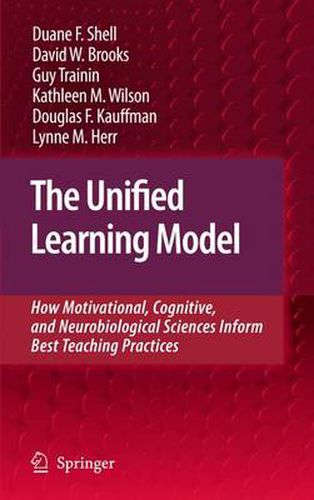Readings Newsletter
Become a Readings Member to make your shopping experience even easier.
Sign in or sign up for free!
You’re not far away from qualifying for FREE standard shipping within Australia
You’ve qualified for FREE standard shipping within Australia
The cart is loading…






This title is printed to order. This book may have been self-published. If so, we cannot guarantee the quality of the content. In the main most books will have gone through the editing process however some may not. We therefore suggest that you be aware of this before ordering this book. If in doubt check either the author or publisher’s details as we are unable to accept any returns unless they are faulty. Please contact us if you have any questions.
This is a book about how humans learn. Our focus is on classroom learning although the principles are, as the name of this book indicates, universal. We are concerned with learning from pre-school to post-graduate. We are concerned with most bu- ness, industrial and military training. We do not address how infants learn how to speak or walk, or how grown-ups improve their tennis swing. We do address all learning described by the word thought , as well as anything we might try to teach, or instruct in formal educational settings. In education, the words theory and model imply conjecture. In science, these same words imply something that is a testable explanation of phenomena able to predict outcomes of experiments. This book presents a model of learning that the authors offer in the sense of scientists rather than educators. Conjecture implies that information is incomplete, and so it surely is with human learning. On the other hand, we assert that more than enough is known to sustain a scienti?c model of learning. This book is not a review of the literature. Instead, it is a synthesis. Scholars and many teachers likely have heard much if not most or even all of the information we use to develop the uni?ed learning model. What you have not read before is a model putting the information together in just this way; this is the ?rst one.
$9.00 standard shipping within Australia
FREE standard shipping within Australia for orders over $100.00
Express & International shipping calculated at checkout
This title is printed to order. This book may have been self-published. If so, we cannot guarantee the quality of the content. In the main most books will have gone through the editing process however some may not. We therefore suggest that you be aware of this before ordering this book. If in doubt check either the author or publisher’s details as we are unable to accept any returns unless they are faulty. Please contact us if you have any questions.
This is a book about how humans learn. Our focus is on classroom learning although the principles are, as the name of this book indicates, universal. We are concerned with learning from pre-school to post-graduate. We are concerned with most bu- ness, industrial and military training. We do not address how infants learn how to speak or walk, or how grown-ups improve their tennis swing. We do address all learning described by the word thought , as well as anything we might try to teach, or instruct in formal educational settings. In education, the words theory and model imply conjecture. In science, these same words imply something that is a testable explanation of phenomena able to predict outcomes of experiments. This book presents a model of learning that the authors offer in the sense of scientists rather than educators. Conjecture implies that information is incomplete, and so it surely is with human learning. On the other hand, we assert that more than enough is known to sustain a scienti?c model of learning. This book is not a review of the literature. Instead, it is a synthesis. Scholars and many teachers likely have heard much if not most or even all of the information we use to develop the uni?ed learning model. What you have not read before is a model putting the information together in just this way; this is the ?rst one.